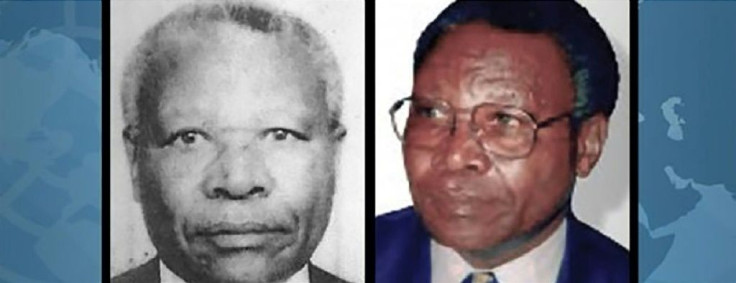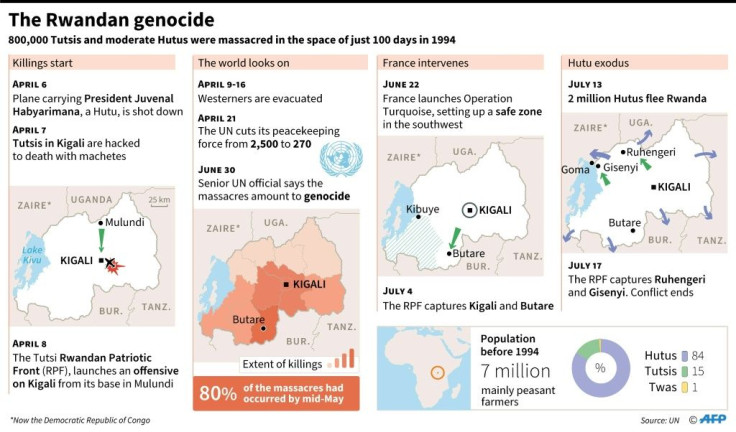Suspected Rwandan Genocide Financier In UN Custody
Felicien Kabuga, suspected of financing the 1994 Rwandan genocide, has been moved from France to The Hague ahead of his trial, a UN tribunal said Monday.
Once one of Rwanda's richest men, Kabuga is accused of having helped create the Interahamwe Hutu militia group and the Radio-Television Libre des Mille Collines, whose broadcasts incited people to murder, and of helping to buy machetes in 1993 that were distributed to genocidal groups.
More than two decades after he was first indicted by the International Criminal Tribunal for Rwanda (ICTR) in November 1997, Kabuga was arrested near Paris on May 16.
His lawyers argued that Kabuga, who says he is aged 87 but according to the arrest warrant is 84, should face trial in France.

But late last month the country's top court ruled that he could be transferred to UN custody.
"His initial appearance will be held in due course before a judge of the trial chamber assigned to his case," the United Nations International Residual Mechanism for Criminal Tribunals (MICT) said in a statement.
After noting that Kabuga had evaded arrest for more than 22 years, the court recalled the charges of "genocide, complicity in genocide, direct and public incitement to commit genocide, attempt to commit genocide, conspiracy to commit genocide, and extermination and persecution as crimes against humanity."
Kabuga denies all the charges.

The UN says 800,000 people died during a genocide that lasted 100 days starting in April 1994, mostly ethnic Tutsis.
Kabuga was initially to be transferred to the MICT's facility in Arusha, Tanzania, which took over the ICTR's duties when it formally closed in 2015.
But a judge ruled he should first be taken to The Hague for a medical examination, and it was not immediately known when Kabuga might be transferred to Arusha.
The suspect's lawyers have also sought to have him held in The Hague once France had turned him over, "owing to his age, fragile health and the presence of the Covid-19 epidemic in Tanzania."
One of his lawyers in France had argued that Kabuga would not receive proper medical treatment in Tanzania for conditions including diabetes, high blood pressure and leukoaraiosis -- an incurable illness that erodes physical and cognitive abilities.
The UN tribunal's statement identified three judges charged with hearing the case: Iain Bonomy, who will preside; Graciela Susana Gatti Santana; and Elizabeth Ibanda-Nahamya.
smt-wai/ri
© Copyright AFP 2024. All rights reserved.




















